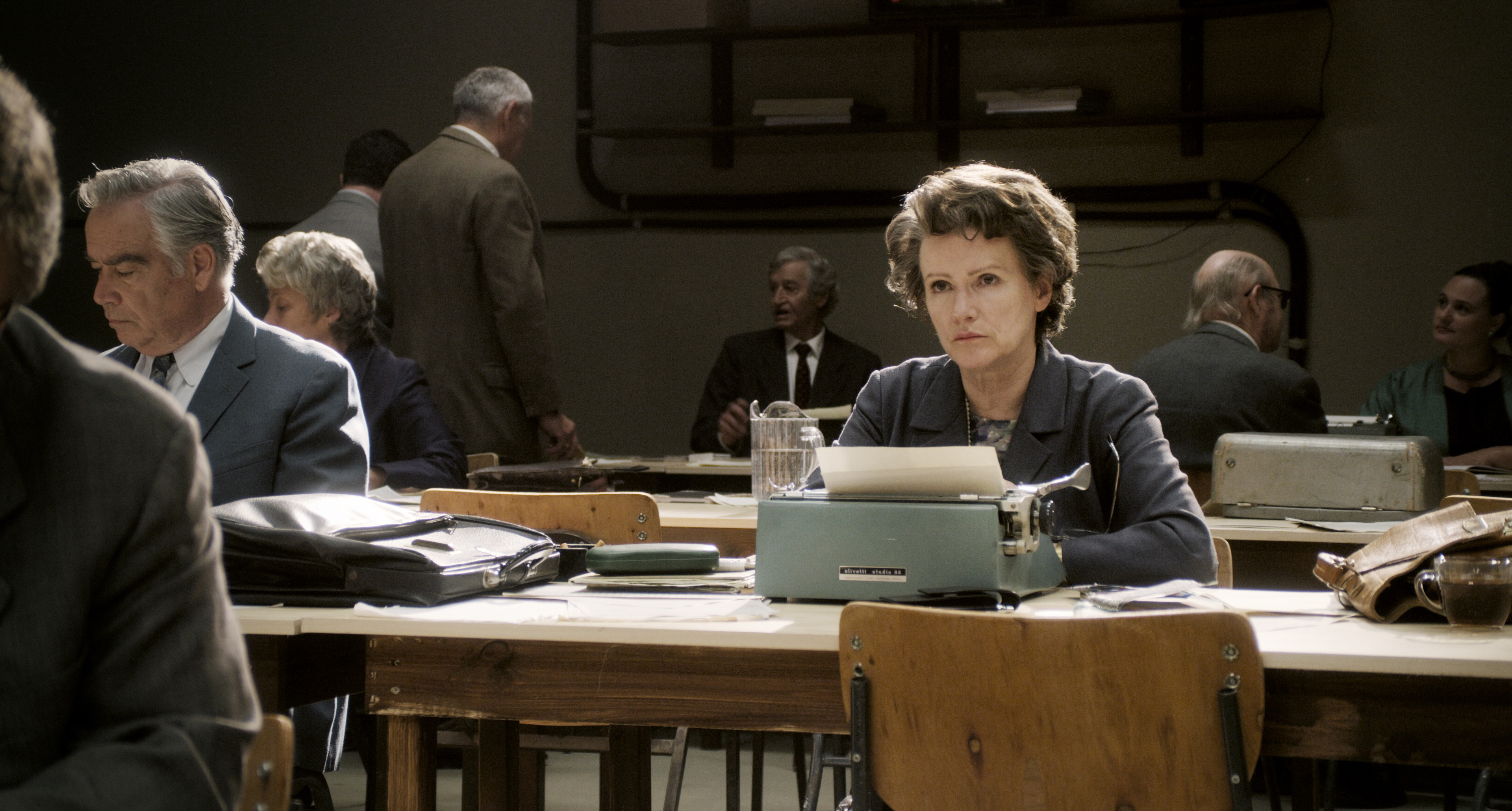Hannah Arendt
Opens Fri., July 19 at Seven Gables. Not rated. 113 minutes.
In an otherwise conventional approach to her biopic, director Margarethe von Trotta makes an exception for one key aspect of the story. It’s a crucial decision. Hannah Arendt (Barbara Sukowa) is already an esteemed professor and public intellectual when she talks The New Yorker into hiring her to cover the Adolf Eichmann trial in Israel in 1961. This is where von Trotta makes the exception: Eichmann is not played by an actor, but represented by the extensive newsreel footage of the trial. A small thing, but critical: An actor might have brought some distinction, some charisma, to the role of the Nazi war criminal.
That could have worked against Arendt’s famous observation about Eichmann’s very ordinariness. She coined the phrase “the banality of evil” to describe the particular horror of the Nazis’ tidy organization of genocide. Instead of the aberrant monsters of the final solution, she proposed a population of bland bureaucrats with blood on their hands. This bold assertion, and the sometimes angry fallout that came after, is at the core of Hannah Arendt. The subject’s a good fit for von Trotta, whose career has frequently taken a political slant; here she casts a merciless eye on how the political is inevitably personal.
Much of the film is in English (Arendt was teaching in New York during the period depicted), which makes for some awkward scenes—von Trotta’s ear for conversational American dialogue is uncertain, especially when people are spouting us-against-them rhetoric. Luckily, Janet McTeer, as Mary McCarthy, is more than capable of supplying well-managed barbs, particularly in defending Arendt from her attackers. Sukowa, who played the title role in von Trotta’s 1986 Rosa Luxemburg, keeps even patchy scenes pointed at the central premise, which is all about applying scholarly, unsentimental rigor to a difficult subject.
People accuse Arendt of being heartless in framing a complex argument, and von Trotta shows the toll her New Yorker articles (and subsequent book about the trial) took on Arendt’s friendships. But there’s little question where the filmmaker’s sympathies lie, and Arendt’s dogged pursuit of penetrating insight in the face of comforting conventional wisdoms comes to seem austerely heroic.
film@seattleweekly.com







